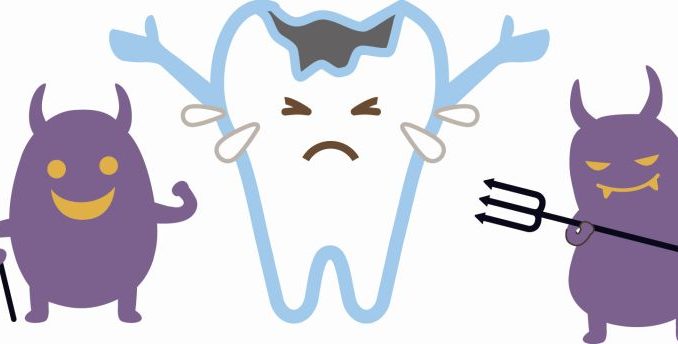
Cavity is a common dental problem, most often triggered by the bacteria. However, not all bacteria are bad and some are even helpful. Bacteria, nonetheless is not the only cause of cavities in the mouth and here we shall look at what else may contribute to this less then pleasant dental condition.
Primary cause of cavity
Cavities are usually caused by acids produced by the bacteria in the mouth. A significant plaque build up on your teeth may eventually wear away the protective enamel thus resulting in to a cavity. If you’re not regular with your visits to the dentist, the acids present in your mouth could very well penetrate to the teeth interiors and accelerate tooth decay. Tooth aches are the most commonly experienced symptoms of a cavity once the acids have reached far inside the tooth enough to irritate the nerve endings there.
What are dental cavities?
Dental cavities are holes on the teeth which damage their entire structure. The condition is also referred to as caries, tooth decay or cavities. However, it’s a universal condition and second only to common cold. Cavities usually occur in children or young adult; however, it is not limited to any particular age. It is the most common reason for tooth loss in youngsters.
How the bacteria contribute to cavities
* Bacteria convert all the food eaten, specifically sugar and starch into acids. Together with plaque, acids, saliva and food debris, the bacteria form a sticky substance known as plaque which clings to the teeth and damages them. The substance is particularly prominent on the chewing grooves of the back molars and also above the gum line as well as the filling edges. Plaque that has not been removed transforms into tartar or calculus and together with plaque, irritates the gums causing dental conditions such as gingivitis and periodontitis.
* The acids produced by the bacteria further weaken the tooth surface enamel and create holes on it. The cavity is usually painless in the beginning and only begins to irritate the mouth once it has increased in size considerably within the teeth interiors. This may result in the death of the nerves as well as the blood vessels present there. Left untreated, it may eventually lead to a tooth abscess development.
* Plaque and bacteria typically accumulate within a time period of twenty minutes after eating. Without adequate treatment, cavities may not only form but also, internal structures of the tooth may be damaged beyond repair leading to eventual tooth loss.
* Dietary sugars and starches may further contribute to cavity formation and tooth decay. Sticky foods are particularly harmful to the teeth as they tend to stick to the surface. Also, frequent snacking bouts can increase the time the acids are in contact with the surface of the tooth, thus accelerating the cavity formation.
Given the above causes, one should remember to follow a comprehensive dental hygiene routine and also be more regular with visits to the dentist to prevent a cavity from forming.
